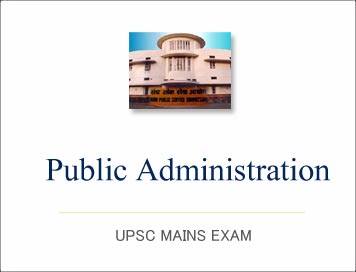Public Administration Mains 2017 : Solved Paper Question Paper-2 (Question-5)

Public Administration Mains 2017 : Solved Paper Question Paper-2 (Question-5)
(Section B)
Q5) Answer the following questions in about 150 words each:
a) “The institution of Gram Sabha has very little connection with the Gandhian spirit of direct democracy.” Critically examine (10) (Rural Development)
ANSWER : The spirit of the 73rd Amendment to the Constitution is to take the democratic governance and its institutions to the grass root levels and it states In all states there shall be a Gram Sabha in each village to which the Panchayat will be accountable. The power and function shall be assigned by a law passed by the state legislature. For, it is the only way to realize the value of democracy from the grassroots level as it will enable the people to participate in taking and implementing decisions without a rigid and strict control of any higher authority. Moreover, it is the only alternative to reduce the interference of the state in day-to-day affairs of the people. Gandhi never believed in half-way house democracy, or disinterest decentralization. Thus, his linking for decentralization originates from his urge for the shrinking of the state and the deepening of the roots of democracy. By the Gandhian conception of democratic decentralization, the higher units of the government get their strength and power from the lower units. As a result, the panchayat has to be the basic unit of democratic decentralization and the higher units will have to co-ordinate the activities of the village panchayats with a view to increasing the efficiency and skill of administration and public service.
b) “There is a need for greater inclusion of technocrats in bureaucracy to ensure effective governance in India.” Do you agree” Elucidate (10)( Civil Services)
ANSWER : To recruit persons possessing expertise, and skills in public
administration and to place them in positions without loss of time, suitable
structural changes in the civil service would seem urgently called for. A much
larger number of experts and specialists will necessarily have to be inducted
into the civil service and their role and place in the generalist dominated
syndrome of bureaucracy has to be appropriately reorganized.
Measures towards enhancement of administrative capabilities at all levels of
government and all along the hierarchy must be formulated and put in operation
right now without any further waiting. Stress may here be laid on the need for
experts and specialists acquiring administrative experience and training to
enable them to move into positions of administrative responsibilities in various
areas and levels of government.
Bureaucracy, at any rate, a considerable segment of it, is under an inescapable
obligation to inculcate a disposition towards work in the field more especially
in the rural areas and amongst the vulnerable sections of the population. The
rural and the social administrator bears a crucially important responsibility in
putting through the various programmes of action. This demands structural and
procedural changes in public administration and attitudinal changes in the
bureaucracy. A broadening of the social base of the latter would also seem
necessary.
c) “Civil servants should avoid airing grievances in the media.” In the context , discuss the grievance redressal mechanisms available to the Civil Servants in India.(10) (Civil Services)
ANSWER : The cardinal principles of civil service, viz.
professionalism, anonymity, integrity and neutrality, are slowly withering.
A civil servant can move the court to seek remedy against any wrong done to him
in the course of discharge of public duty. This is called judicial remedy. Many
kinds of administrative tribunals have been set up to provide cheap and speedy
justice to the complainant.
Parliamentary Procedure provides for opportunities to raise questions in
Parliament by the elected representatives concerning their constituencies. Also,
there is a Parliamentary Committee called the Committee on Petitions.
Under the provisions of the Public Servants (Enquiries) Act, departmental as
well as public agencies can be instituted against a public servant for his
misconduct. Not day-to-day dealing but more serious matter of maladministration
comes under the purview of this Act.
The government has also created Department of Administrative Reforms and Public
Grievances. This is the nodal agency of the government for Administrative
Reforms as well as redressal of public grievances. The enactment of
Administrative Tribunal Act 1985 opened a new Chapter in the sphere of
administering justice to the aggrieved government servant and in some cases
public members.
